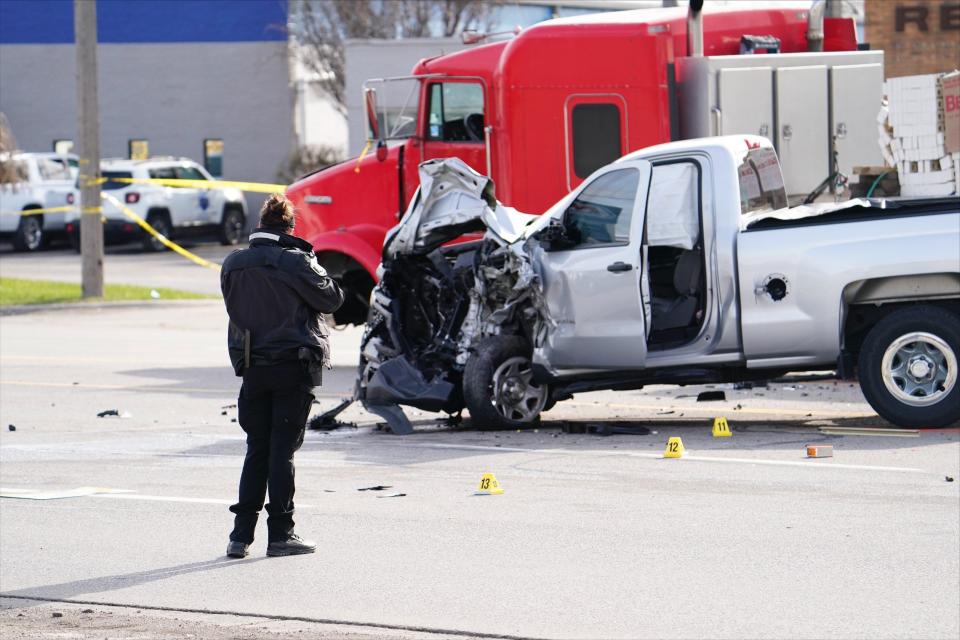Car insurance rates to jump for Michigan drivers as 'catastrophic claims' fees take effect
Michigan drivers will start paying more for car insurance next month when new and higher "catastrophic claims" fees begin — even for those who opt out of any catastrophic no-fault coverage.
The Michigan Catastrophic Claims Association, or MCCA, decided last fall to raise its annual per-vehicle assessments on all Michigan auto insurance policies, and those fee hikes will kick in July 1:

Drivers choosing unlimited, lifetime medical coverage — known as personal injury protection, or PIP — will be charged $122, up from $86.
Drivers choosing any other PIP option, including zero-dollar PIP, will be charged a $48 assessment for "deficit recoupment." Currently, drivers who choose an option besides unlimited pay no MCCA assessment or fees.
The association justified the fee increases as necessary to address a deficit in the MCCA's statewide fund. The fund, which is for the medical expenses of the most severely injured victims of auto accidents, swung from a $5 billion surplus in 2020-21 to a $3.7 billion deficit last fiscal year for three primary reasons:
A court decision last summer that overturned some no-fault medical cost controls for crash victims (a projected loss of $3.7 billion).
Declines in the stock market ($2.8 billion loss).
The cost of issuing $400 per-vehicle refund checks in spring 2022, prompted by the previous surplus ($3.1 billion loss).
The Michigan Supreme Court could have a decision before the end of its term July 31 in the case that overturned medical cost controls for catastrophic crash survivors.
An Appeals Court panel, in a 2-1 decision last August, said the cost controls do not apply to services for those whose catastrophic accidents occurred before Gov. Gretchen Whitmer in June 2019 signed into law an overhaul of Michigan's no-fault system to lower car insurance rates.
Prior to the overhaul, there were no mandated cost controls on medical services paid through no-fault insurance, and all car insurance policies had to include unlimited lifetime medical coverage or PIP. The overhaul gave motorists a first-ever choice in the amount of PIP to buy with their policy.
More: Michigan Supreme Court to hear no-fault insurance case: What's at stake
More: Whitmer signs bills banning cell phone distracted driving on Michigan roads
The last full MCCA assessment that all drivers paid was $220 for the 2019-20 fiscal year. After the overhaul, those who chose PIP options other than unlimited no longer had to pay the MCCA assessment. But those drivers are still on the hook for MCCA deficit recoupment fees.
The MCCA is a nonprofit corporation controlled by the insurance industry that manages the catastrophic care fund. It acts as a form of reinsurance that reimburses auto insurers once the size of an accident victim's medical bills exceeds a set threshold, currently $600,000.
There were 16,800 individuals in Michigan who had crossed the threshold and had open claims as of June 30, 2022.
PIP covers benefits for catastrophic crash survivors that even the best commercial health insurance plans don't cover, such as in-home attendant care and long-term stays in specialized rehabilitation centers. However, some rehab centers have closed and some attendant care services have dropped patients or threatened to drop patients because of the price controls.
The last financial report for the MCCA showed $21.8 billion in total assets, down from $27.2 billion a year earlier. So if the MCCA were to immediately liquidate all its stocks, bonds and other holdings, the $21.8 billion is how much money there would be.
Distracted driving law takes effect
Another change on the horizon this summer for Michigan drivers is a new distracted driving law that generally prohibits using a non-hands-free device while driving.
Starting June 30, drivers can be fined for holding up a phone during a call, scrolling social media or any other phone use. It has long been illegal in Michigan to text while driving.
The penalties for violating the new law are a $100 civil fine for first-time offenders and/or 16 hours of community service and $250 fines for subsequent violations and/or 24 hours of community service. Fines would double if a violation occurs during a car crash.
Contact JC Reindl: 313-378-5460 or jcreindl@freepress.com. Follow him on Twitter @jcreindl.
This article originally appeared on Detroit Free Press: Michigan 'catastrophic claims' auto insurance fees return July 1

